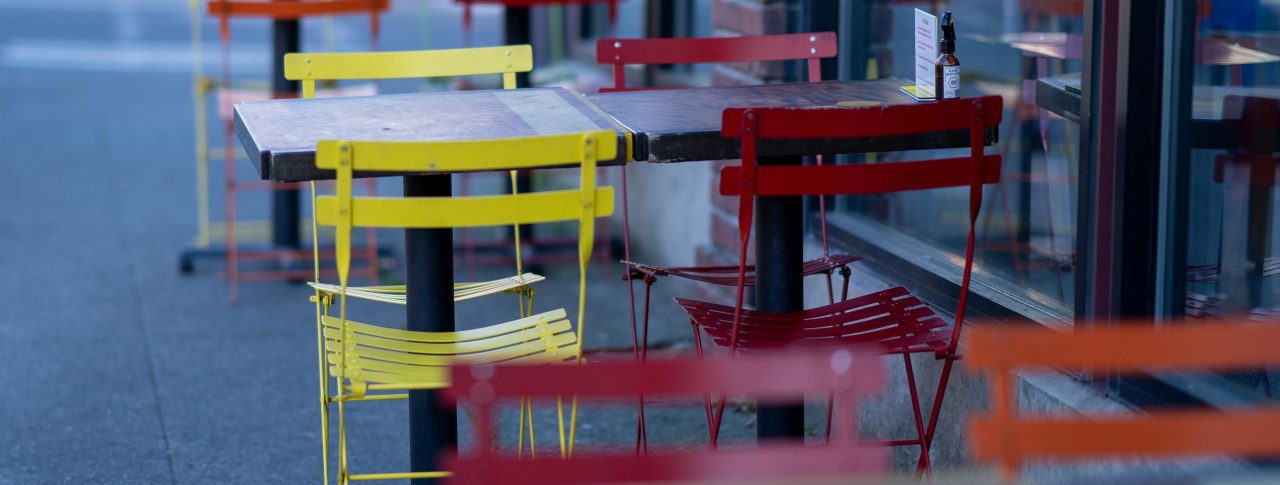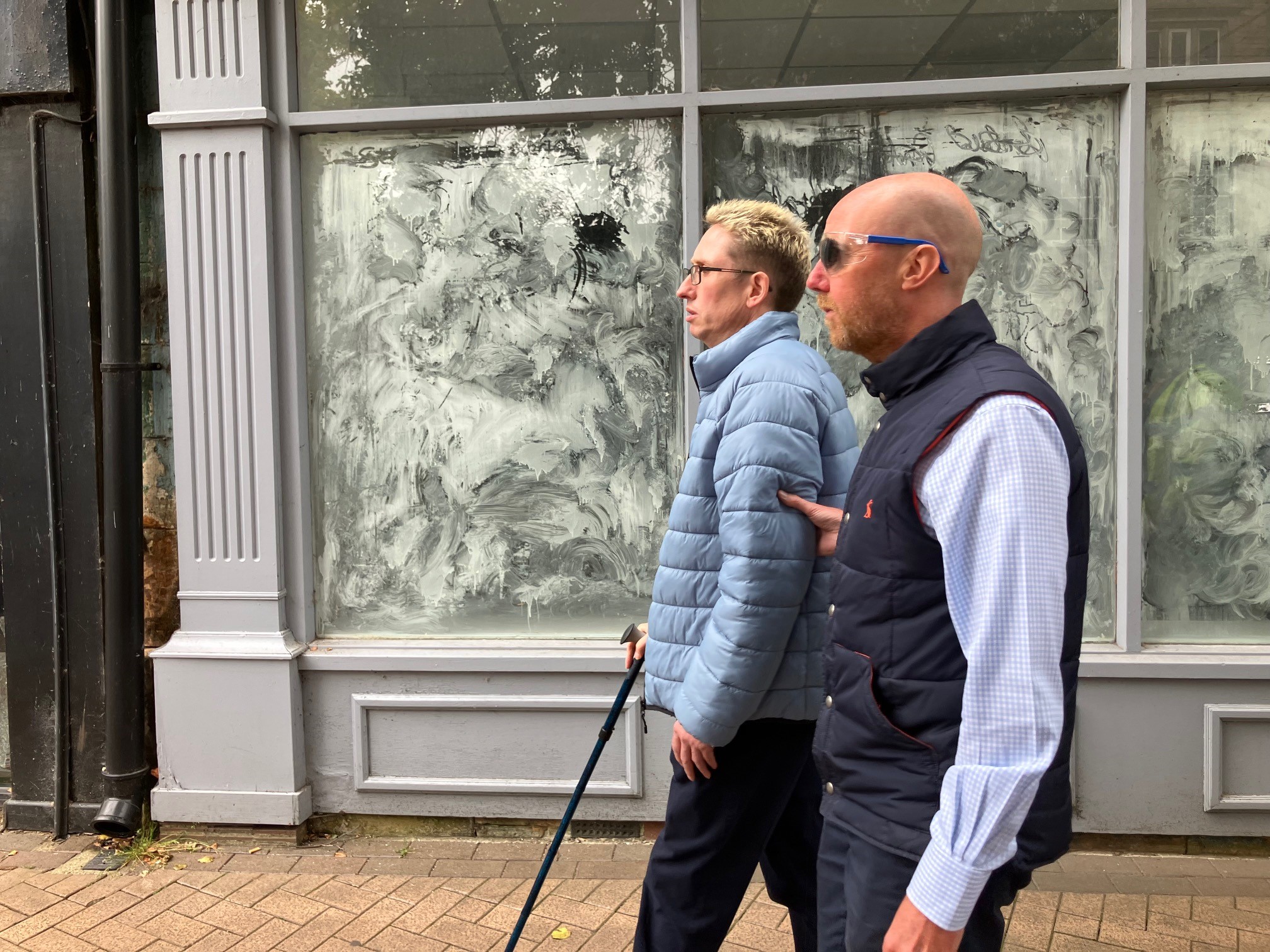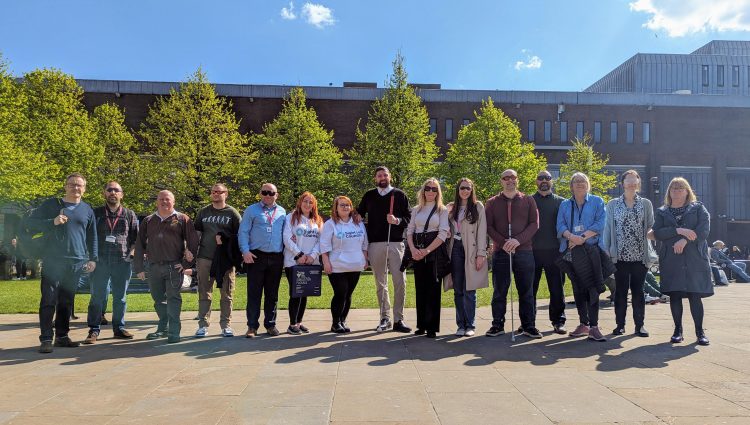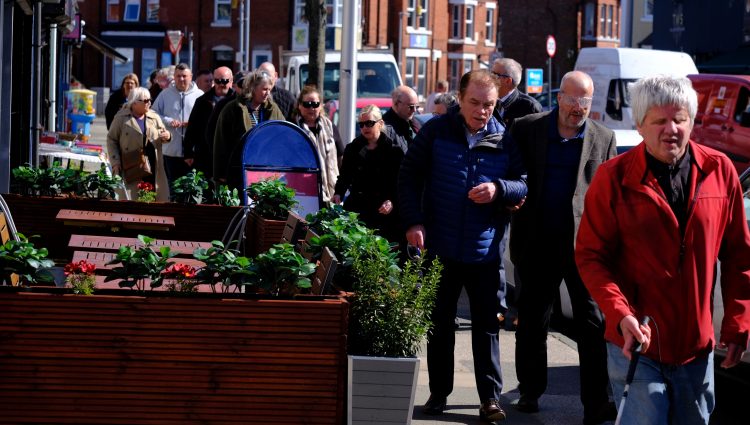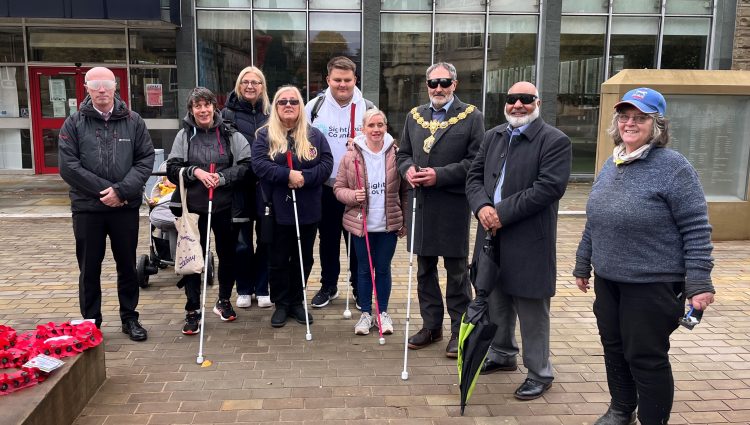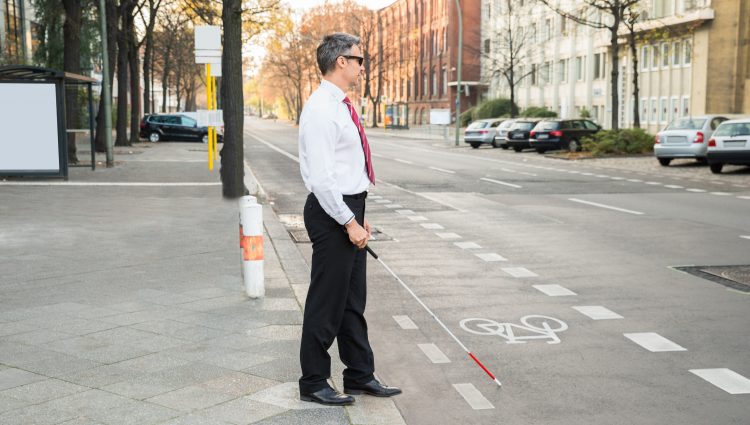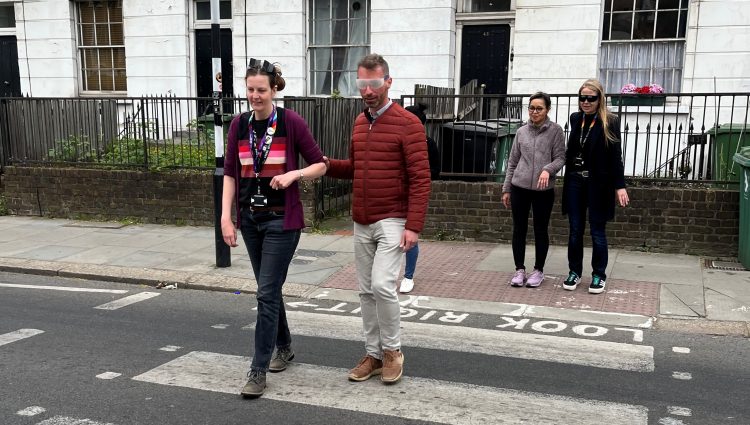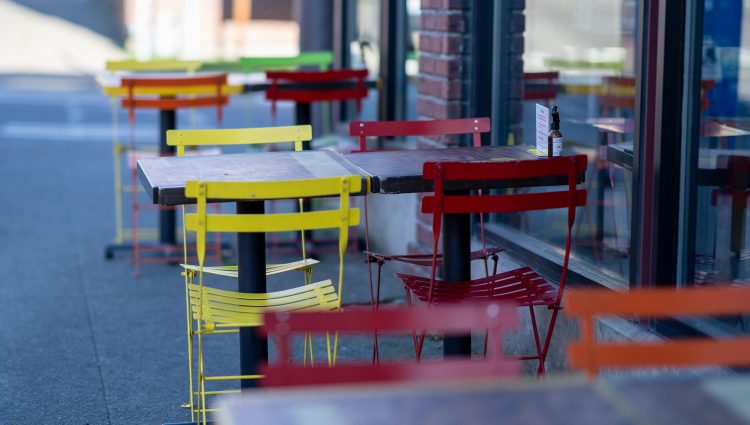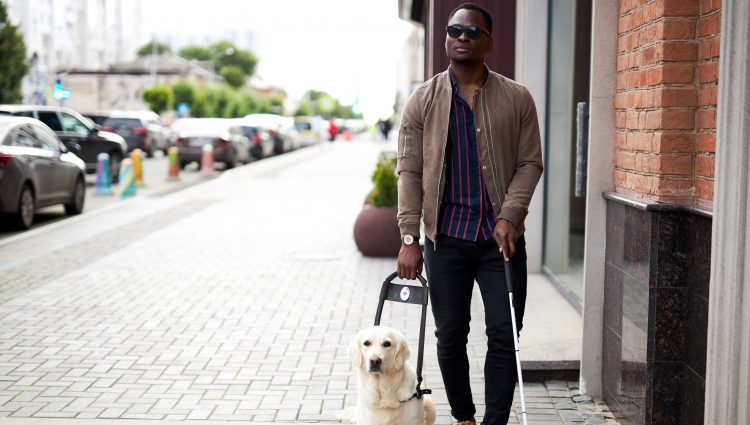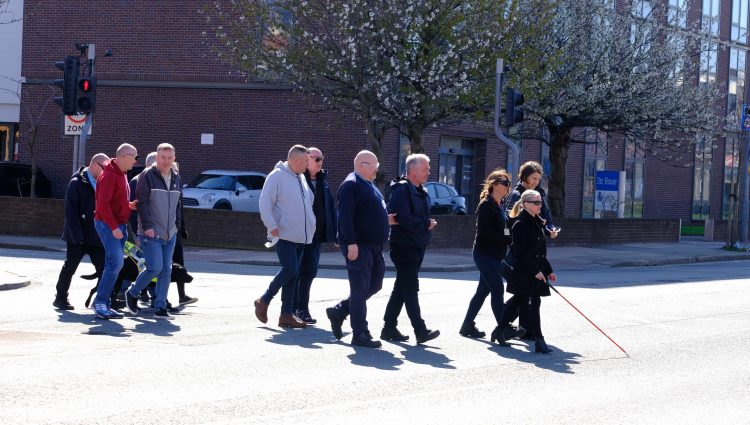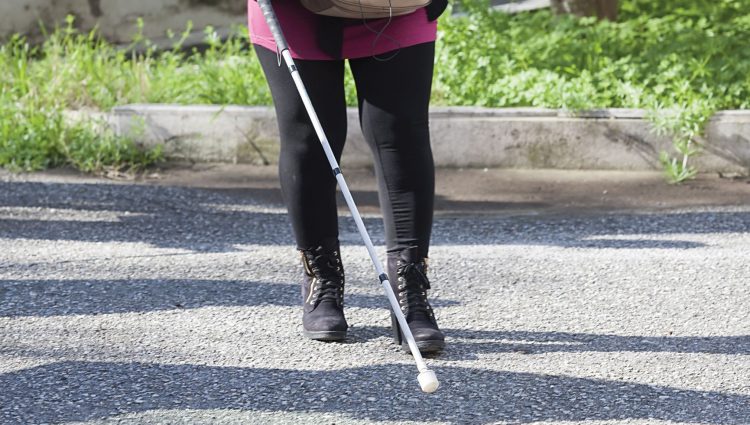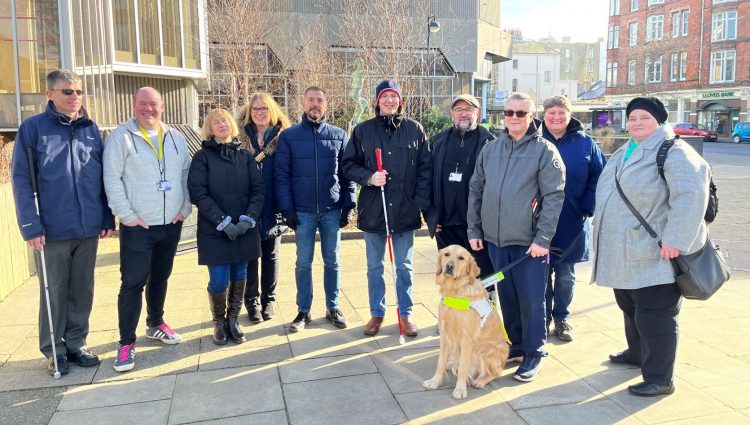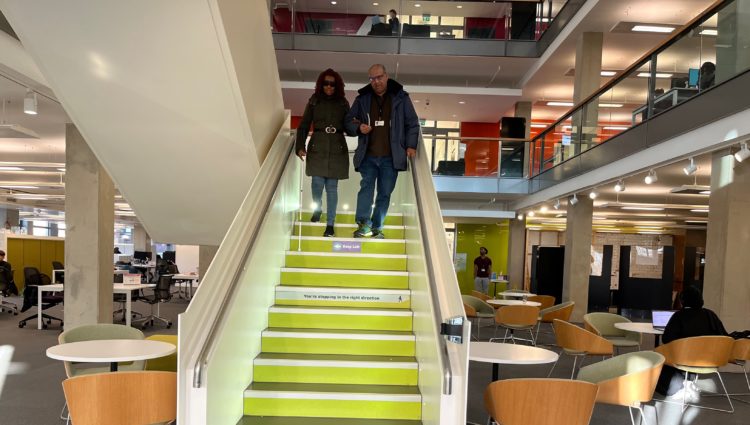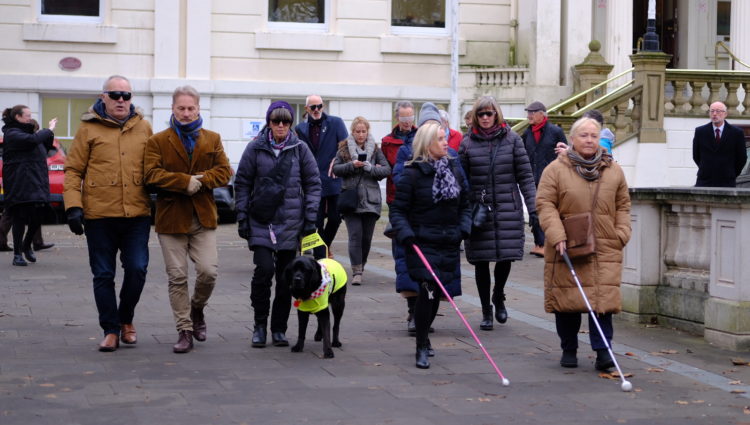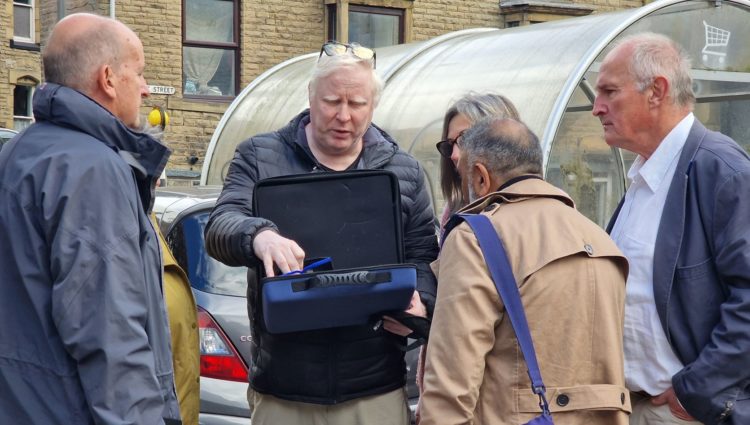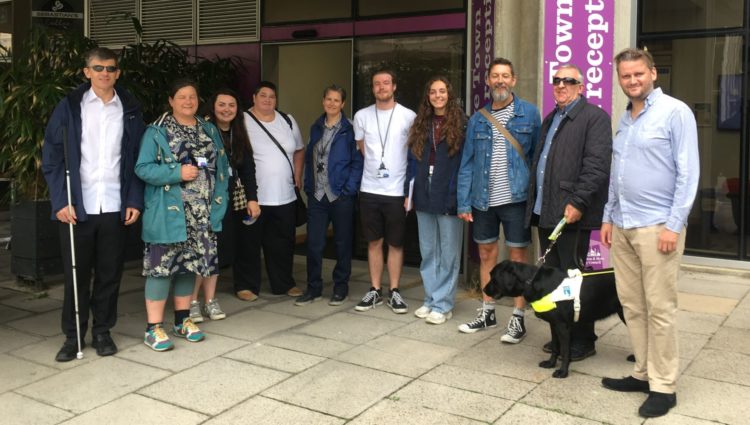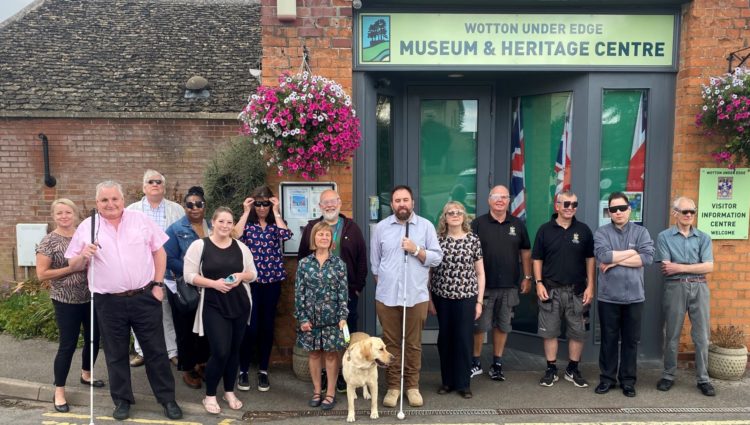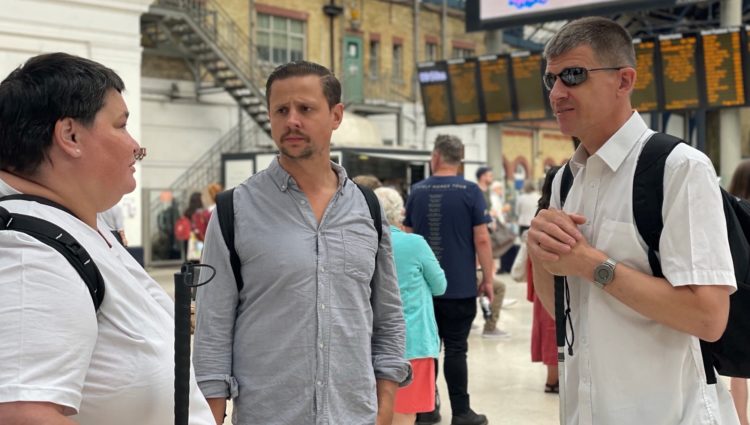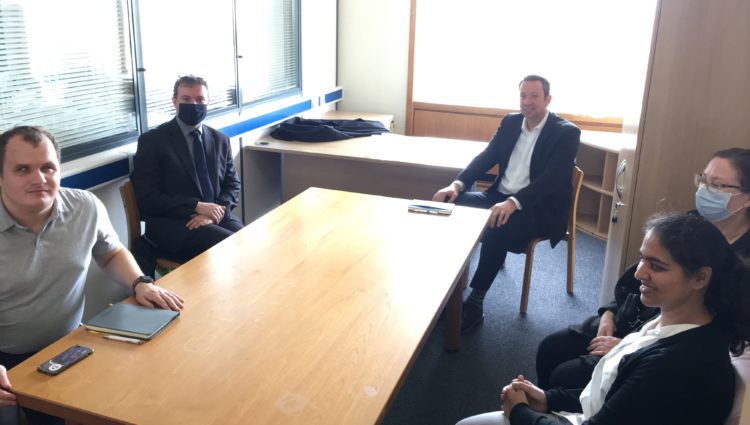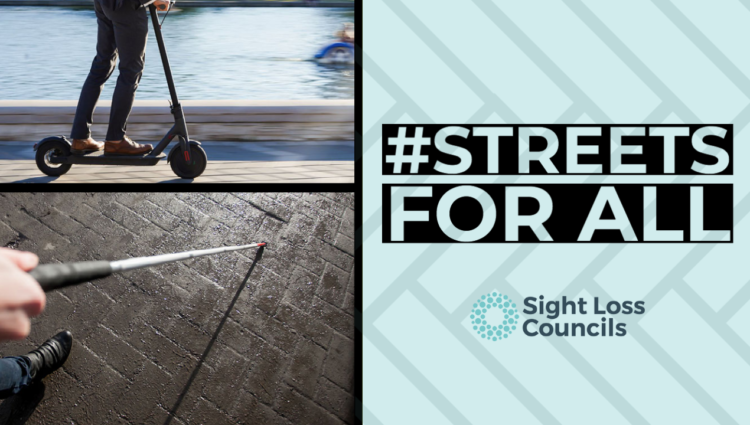Street design
Sight Loss Councils (SLCs) across England have long realised the number of street design challenges that blind and partially sighted people encounter daily. Although the themes may often be the same, such as pavement parking, street cafes and advertising boards, often the solutions and responses we receive differ greatly.
We collaboratively work with partners to influence street design and make public spaces accessible, so that blind and partially sighted residents can navigate them independently and safely, using the power of lived experience.
To do this, we develop positive relationships with all local authorities and wider partners to raise awareness of these challenges and influence the changes that are needed.
One effective way we do this is by arranging simulation walks. These are guided walks where participants wear simulation glasses (sim specs) that replicate various sight conditions that residents may have. By using the glasses, participants experience first-hand some of the challenges and hazards our streets present to blind and partially sighted people. When paired with vision awareness sessions, these experiences aim to deepen understanding of the barriers faced by blind and partially sighted people to influence change.
Feedback from these sessions is extremely positive. Paul Tebbitt, Policy Planner at Mansfield District Council (pictured below right during a sim spec walk), explained following a recent session:
P
“The session was delivered in a very professional way but with a very personal touch. The use of sim specs offered an interactive experience and gave a real insight into some of the challenges faced. It also gave an appreciation that we need to be better at creating ‘inclusive’ places.”
“Our engagement has helped me to think more carefully about how we take account of the needs of blind and partially sighted people in our decision making – whether that be in designing public realm improvements, regeneration projects or new developments.
Social model of disability
We also realise that for real meaningful and long-lasting change to take place, we needed to develop a more strategic approach. Therefore we are asking all City Mayoral Regions, Districts Unitary, County and Metropolitan Councils to adopt the Social Model of Disability.
This Social Model of Disability recognises that physical, social and attitudinal barriers make people disabled – as opposed to it being something that exists within disabled people’s bodies or minds. Instead, we want a world where everyone can live the lives they want to live in an equal way.
We believe this mandate will ensure that all local government bodies make certain that ‘accessible services and environments’ influence their decision-making processes.
Street charter
To further enforce this, Sight Loss Councils will actively look to work with other disabled groups to form a pan-disability collective. This collective will develop a Street Charter highlighting the standards and criteria everyone must consider. This is to ensure our streets are accessible for all so everyone can move around freely and without hinderance.
Access officers
We are also advocating for each area to employ an Access Officer. In local authorities where they exist, we have seen the difference they make in relation to accessibility. This is by acting as the conduit between the council and those identified as having protected characteristics.
By championing these three strategic areas, Sight Loss Councils will ensure long-lasting change in how the built environment is made accessible for across the country.
It is vital that we all work together to make our streets accessible for all.
As Jenny Mulholland, Camden Council Councillor, said after her involvement in a sim spec walk led by Sight Loss Council volunteers:
“We all need to work together to make our streets accessible. No one would want to stay at home or risk injury when they go out because of changes outside of their control, such as roadworks, or tables and chairs being placed on the pavement outside a café. This is something no one should have to accept, including the council and Camden residents. Thank you for a great session.”

